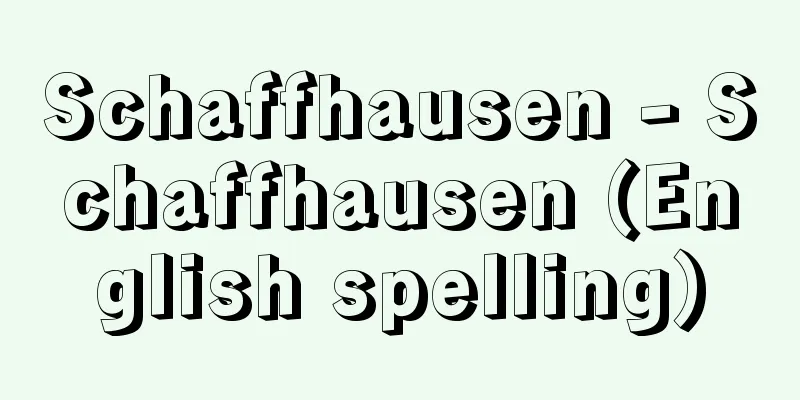Tax reform agreement - Kaizeiyakusho

|
This is a revised agreement of the trade regulations attached to the Ansei Five-Power Treaty. It is also called the Edo Agreement. With the treaty's opening deadline fast approaching, pressure from the fleets of the various nations that had gathered off the coast of Hyogo Port led to the signing of the agreement by senior councilor Mizuno Tadayoshi with representatives from the four nations of Great Britain, America, France, and the Netherlands on May 13, 1866 (Keio 2). At this time, the international side, led by British envoy Parkes, demanded the approval of the treaty, the opening of Hyogo Port, and a reduction in tariffs, on the condition that the financially struggling Shogunate be exempted from paying two-thirds of the indemnity for the Shimonoseki War. Since the Imperial Court did not permit the opening of Hyogo Port, it became inevitable that they would have to accept the reduction in tariffs. As a result, tariffs, which had been based on an ad valorem tax system of 35% or 5%, were changed to a specific tax system based on a flat 5% of the cost price, determined by the average price over a four-year period, as had been customary in trade with China. As a result, foreign goods began to flow into Japan in large quantities at low prices that did not keep up with domestic inflation, and Japan suffered from disadvantageously low tariffs on a par with those in China, severely impeding the development of industrial capital. It was abolished in 1894 (Meiji 27). [Tanaka Tokihiko] "The International Environment of the Meiji Restoration" by Takashi Ishii (1966, Yoshikawa Kobunkan) [References] | |Source: Shogakukan Encyclopedia Nipponica About Encyclopedia Nipponica Information | Legend |
|
安政(あんせい)五か国条約付属貿易章程の改訂協約。江戸協約ともよばれる。条約所定の開港期限を間近に控えて兵庫港沖に集結した列国艦隊の圧力を受け、1866年(慶応2)5月13日、英、米、仏、蘭(らん)4国代表との間に、老中水野忠精(ただきよ)が調印した。この際、イギリス公使パークスを主役とする列国側は、財政難の幕府が困窮している下関戦争償金支払い額の3分の2を減免することを条件に、条約勅許、兵庫開港、関税率低減を要求項目に掲げた。兵庫開港を朝廷が許可しなかったため、関税率の低減受諾は必至の成り行きとなった。この結果、これまで35%ないし5%の従価税方式であった関税が、対清(しん)貿易で慣行化されていた4年間の物価平均で定まる、原価の一律5%を基準とする従量税方式に改められた。そのため外国商品は、以後、日本国内のインフレに即応しない安値で大量に流入することとなり、清国並みの不利益な低関税に苦悩し、産業資本の発達が厳しく阻害されることとなった。1894年(明治27)廃棄。 [田中時彦] 『石井孝著『明治維新の国際的環境』(1966・吉川弘文館)』 [参照項目] | |出典 小学館 日本大百科全書(ニッポニカ)日本大百科全書(ニッポニカ)について 情報 | 凡例 |
>>: Regenerative Brake - Kaisei Brake
Recommend
Collection of Collected Pieces - Shuukaishuu
A book that gives a very simple account of the his...
Arechikamadori - Arechikamadori
...They live on trees and build nests in trees us...
Trolling - Trolling (English spelling)
Also called trolling, this is a method of fishing...
Original - Genbutsu
Revenues generated from a thing are called fruit,...
Amsterdam-Rotterdam Bank (English)AmsterdamRotterdamBank
…The Nederlandsche Bank, the central bank and sol...
international pitch
…Which note is considered the standard pitch vari...
normal salt
...The correct term is hydroxide salt. In contras...
Paiwanic
... There is much debate about the subdivision of...
Callitris
...The subfamily Cupressaceae includes species su...
Music Beginner's Guide - Ongyoku Shoshinden
Gidayu's Bushizukushi. Compiled by Takemoto Ta...
House-shaped clay figures
Also called a Haniwa family, this is a type of Han...
Sakai Incident
This was a clash with foreign soldiers that occur...
Rotating sunshine meter - rotating sunshine meter
...The Jordan sunshine meter uses a sealed cylind...
Hikaru Hoshino - Seiyako
The amount of starlight in the night sky. Usually,...
Heiligenschein
...In addition, the lotus motif, the precious flo...

![Yamada [Hot Spring] - Yamada](/upload/images/67cd0e3cbd2ed.webp)







